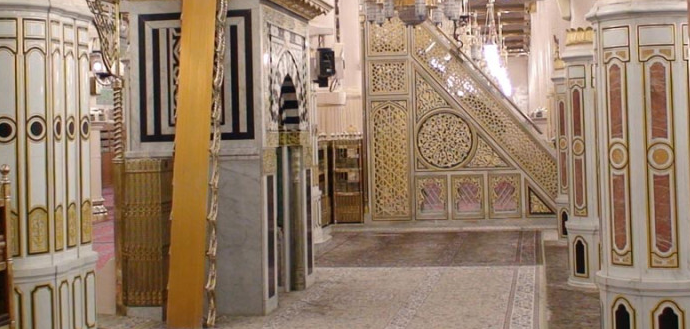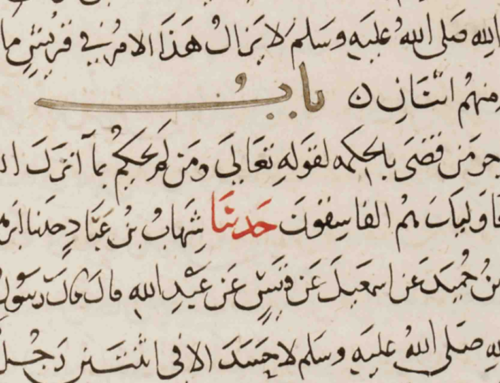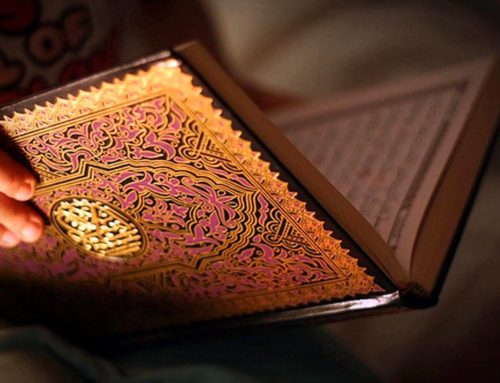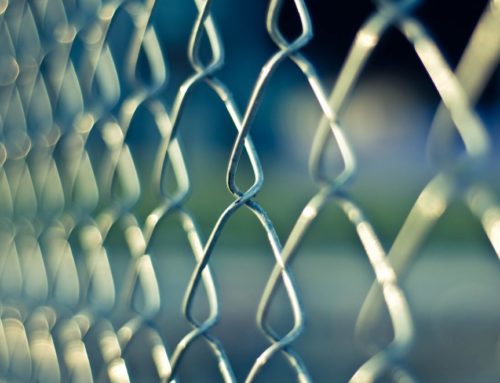Translated by Zameelur Rahman
‘Abd ibn Humayd narrated to us: Yunus ibn Muhammad narrated to us: Shayban ibn ‘Abd al-Rahman narrated to us: from Qatadah: Anas ibn Malik narrated to us: he said: Allah’s Prophet (Allah bless him and grant him peace) said:
“Verily when the servant is put in his grave, and his companions turn away from him, he hears the noise of their sandals” (Sahih Muslim)
The Issue of the Dead Hearing
His statement “he hears the noise”: this hadith is a proof for those who affirm the hearing of the dead and this is the position of ‘Abdullah ibn ‘Umar (Allah be pleased with him). Ibn ‘Abd al-Barr (Allah have mercy on him) mentioned that it is the preferred view of ibn Jarir al-Tabari, ibn Qutaybah and most of the ‘ulama.
It was narrated from ‘A’ishah (Allah be pleased with her) that she opined that the dead do not hear and interpreted the hadith of the well of Badr (which contained the corpses of the disbelievers) [in this way]. A group of ‘ulama agreed with her on this. Al-Qadi Abu Ya’la from the great Hanbalis preferred this view. Ibn al-Humam (Allah have mercy on him) mentioned that most Hanafi scholars take the view that the dead do not hear, using as proof His statement (Most High) “Truly thou canst not cause the dead to listen” (27:80) and “Thou canst not make those to hear who are (buried) in graves” (35:22) and for this reason, the Hanafis say: if one swears he will not speak to someone and he speaks to him when he is dead, he has not broken his oath.
The hadith of the chapter proves unequivocally that the dead hears the noise of the sandals of his companions. It is also authenticated from the Prophet (Allah bless him and grant him peace) according to a hadith that is to come shortly that he addressed the disbelievers from the dead of Badr and said to the Companions (Allah be pleased with them): “You do not hear better [than them] to what I say to them.” The two shaykhs [Bukhari and Muslim] transmitted it.
Hafiz ibn Kathir (Allah have mercy on him) said in the commentary of Surah al-Rum (3:438): “The correct view according to the ‘ulama is the view of ‘Abdullah ibn ‘Umar, due to corroborations to its authenticity from many paths. From the most well-known of these is what ibn ‘Abd al-Barr narrated, authenticating it, from ibn ‘Abbas in marfu’ form that ‘none passes by the grave of his Muslim brother that he knew in the world and greets him except Allah restores his soul to him and he returns the greeting to him.’ It is established from him that he instructed his ummah, when they greet the inhabitants of the graves to greet them with the greeting of one addressed [directly], thus the one greeting says ‘peace be on to you, abode of the group of believers’ and such an address is [only] for one who hears and thinks. Were it not so, this address would be akin to addressing an absent person or an inanimate object. The predecessors (salaf) are agreed on that as the narrations from them that the dead person knows of the visit of the living to him and rejoices are mass transmitted (tawatur).”
Despite this preponderant view in this issue, the moderate verifiers from the ‘ulama, did not adopt it. [They took the view that] it is the norm in the dead that they cannot hear, but it is not impossible that Allah Most High makes them hear a speech in some situations by way of breaking the norm and such an incidence has been established in the hadith of this chapter, in the hadith of the dead of Badr and in the hadith of ibn ‘Abbas which ibn ‘Abd al-Barr narrated and authenticated. Hence, it is required that we believe in the hearing [of the dead] in these instances and stop short [at giving judgment] about other instances which no text is recorded about.
My father ‘Allamah Mufti Muhammad Shafi’ (Allah have mercy on him) said in his Ahkam al-Qur’an (3:168): “The view of the generalisation of the hearing of the dead in every part of every moment is a statement [expressing] that which you have no knowledge and the view of its complete negation rivals the aforementioned cited texts. For this reason we say it is established in general, I mean in some times and not other times, for one person and not other persons, in some speech and not other speech, and by this explanation the texts and the cited narrations in this topic are in agreement.” He (Allah have mercy on him) wrote at length in verifying this issue, listed the texts and narrations pertaining to it and spoke about them with moderation and balance in which the hearts find rest and the chest finds relief so whoever wants further detail should refer to it.
(Takmilah Fath al-Mulhim, vol. 6 pp. 188-9)







jazakhallah ghair for this entry but I have a question.
Many people pray to graves in thinking the dead can hear them, they ask the dead to say things to Allah for them, or to do things fro them with Allah. Is this allowed? And can you give me hadiths or verses from the Quran to support your point of view. Jazakhallah
@Haneefa
Please see our article on Istighatha (Calling Someone Other Than Allah for Help) for our point of view on this issue.
Assalamualikum. I find Takmilah fath al-Mulhim by Syeikh Taqi Uthmani is very precious. I want to make a research on that. I had 6volumes of Takmilah in Arabic and I would like to buy in english. How can I get the books? I also want to buy all oh his books.Please help me.I thank you in advance for your kindness.
Mdm Zunaidah mohd Marzuki,
Kuala Lumpur, Malaysia.
PHD candidate.
salam alaykum,
Could you provide reference where Qadi Abu Yala and Ibn al Humam denied the dead can hear ?
Because the statement of Aisha(r) is not even refering to physical hearing but to the issue of whether the mushriks or those in graves accepted guidance.